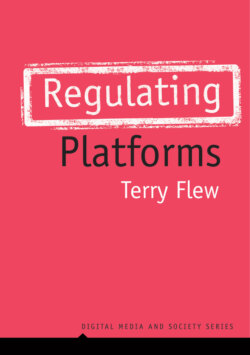Читать книгу Regulating Platforms - Terry Flew - Страница 27
Conclusion
ОглавлениеThis chapter has focused on how the early internet was established around a mix of ideas, interests, and governing institutions – the three Is – that have earned it the qualifiers ‘libertarian’ and ‘open’. Using this three Is framework, the chapter has argued that the core structuring principles of the internet during the period 1990–2010 were free market economics, theories of the new economy based on creative destruction, the primacy of free speech, a communitarian ethos of social sharing, and a romanticism influenced by the New Left counterculture of the 1960s and 1970s. These structural and ideational underpinnings, which were not central to the evolution of the internet in parts of the world such as China, have been gradually unravelling. Among the causes for this process are the changing political economy of the internet, platformization, the fact that online spaces have increasingly come to resemble mass media, a populist politics that demands greater regulation of big tech, and a new regulatory activism and reassertion of public interest and social responsibility principles.
The ideational structure that had long underpinned the absence of external oversight and regulation – the joint facts that the internet was fundamentally different from other media, that governments would inevitably do more harm than good, and that regulation would come at the cost of competition and innovation – had profoundly shifted by the late 2010s. The libertarian internet and the hopes, fears, and desires that had animated its evolution since the 1990s gave way to the platformized internet. The question was now who governed its development and in whose interest, rather than whether cyberspace was indeed governable at all.
